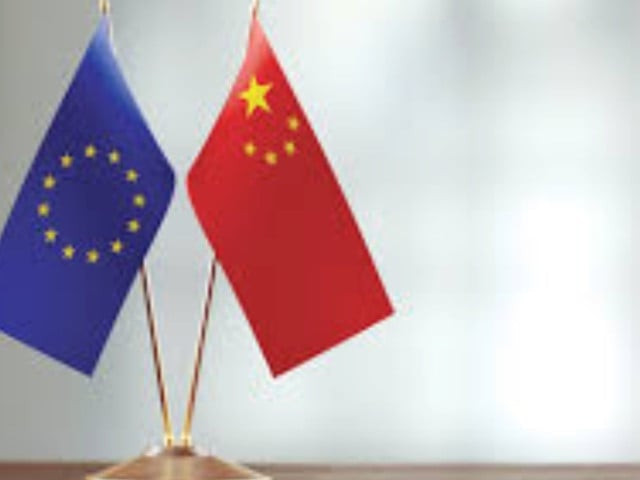EU tariffs termed bad for green ambitions
Xinhua says tariffs risk sparking trade conflict that can harm China-EU relation.

The European Commission's decision to press ahead with tariffs on Chinese-made electric vehicles (EVs) threatens to undermine decades of cooperation between China and the EU, and endangers climate change goals, Xinhua news agency said on Saturday.
On Friday, the EU said it would push forward with hefty tariffs on China-made EVs, even after the bloc's largest economy Germany rejected them. The dispute is its biggest trade row with Beijing in a decade.
State-run Xinhua said the move revealed a "deep-seated protectionist impulse". "Instead of fostering cooperation, these tariffs risk sparking a trade conflict that could harm not only China-EU relations but also Europe's own ambition for a green transition," it said.
"The path forward is clear: protectionist tariffs must be abandoned in favour of continued negotiations."
European imports of Chinese-made EVs have soared in recent years, raising concerns among some domestic EV producers that they could suffer significant losses from a wave of cheap Chinese EVs.
The proposed duties on EVs built in China of up to 45% would cost carmakers billions of extra dollars to bring cars into the bloc and are set to be imposed from next month for five years.
The commission, which oversees the bloc's trade policy, has said the tariffs would counter what it sees as unfair Chinese subsidies after a year-long anti-subsidy investigation. It said on Friday, however, that it would continue talks with Beijing. A possible compromise could be to set minimum sales prices.
China's Commerce Ministry has expressed strong opposition to the planned tariffs, calling them "unfair, non-compliant and unreasonable." It has launched a challenge to them at the World Trade Organisation.
In what has been seen as retaliatory moves, Beijing this year launched probes into imports of EU dairy and other products. The US imposes a 100% duty on imported Chinese EVs.
In a pivotal vote on Friday, 10 EU members backed tariffs and five voted against, with 12 abstentions, EU sources said. It would have taken opposition from a qualified majority of 15 EU members, representing 65% of the EU population, to block the proposal. Reuters reported on Wednesday that the measure was likely to pass with France, Italy and Poland in favour.
The region's biggest economy and major car producer, Germany, voted against the proposal, sources said on Friday.
The EU executive said it had obtained "the necessary support" to adopt the tariffs, although it would continue talks with Beijing to find an alternative solution.
Noah Barkin, senior adviser at Rhodium Group, said it was a big victory for the commission after acute pressure from Germany and China and strengthened Brussels' hand in negotiations, although chances of a deal were slim.
"The risk is that Beijing feels a need to respond to the duties with retaliatory measures of its own, which torpedo the chances of a negotiated solution," he said.
Friday's vote reflected divisions over EU commercial relations with China. Some nations want a firm line against what they see as excessive state subsidies and are mindful of the EU's failure to impose tariffs on Chinese solar panels a decade ago. China has a share of over 90% of the EU photovoltaic market.
Other countries want to encourage Chinese investment or fear a tit-for-tat trade war.
Shares in European carmakers Renault and Volkswagen rose on hopes the tariffs will help them compete with Chinese rivals on their home turf when global demand is falling.
Concerns among some domestic players have grown though that tariffs will spur Chinese companies to accelerate plans to build production capacity in the region.
In what was already seen as a retaliation, Beijing this year launched its own probes into imports of EU dairy and pork products. European cognac and pork producers are concerned.
"French authorities have abandoned us. We do not understand why our sector is being sacrificed in this way," the French cognac association said.
The Chinese government has also discussed raising import duties on large-engine gasoline vehicles, which would hit German producers hardest.



















COMMENTS
Comments are moderated and generally will be posted if they are on-topic and not abusive.
For more information, please see our Comments FAQ